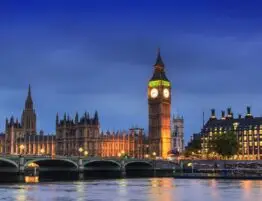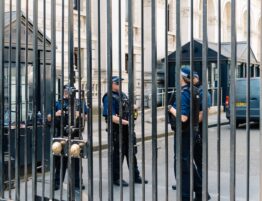
8 January 2021
Migrants who would otherwise have no legal right to remain in the UK can, if their circumstances allow, make an appeal to the First-Tier Tribunal on human rights grounds. In most cases, such appeals are made under art.8 of the European Convention of Human Rights (ECHR).
The art.8 provision states:
Article 8 – Right to respect for private and family life
- Everyone has the right to respect for his private and family life, his home and his correspondence.
- There shall be no interference by a public authority with the exercise of this right except such as is in accordance with the law and is necessary in a democratic society in the interests of national security, public safety or the economic well-being of the country, for the prevention of disorder or crime, for the protection of health or morals, or for the protection of the rights and freedoms of others.
A fundamental principle of art.8 rights is that it is not an absolute right. Under art.8(2) the words “except such as is in accordance with the law and is necessary in a democratic society in the interests of national security, public safety or the economic well-being of the country, for the prevention of disorder or crime, for the protection of health or morals, or for the protection of the rights and freedoms of others” means the State can breach your right to family or private life because, for example, you have a history of promoting a radical ideology that threatens UK security.
All countries have the right to control immigration and this is recognised in art.8(2). Therefore, if you have had your Spousal Visa Extension refused, UK Visas and Immigration (UKVI) can still deport you, even though you have a spouse and children in the UK.
To prevent such horrendous situations occurring, immigration Solicitors can appeal to the Tribunal on human rights grounds, arguing that to deport you in the above circumstances would be out of proportion to the government’s right to control immigration.
At a glance – If a decision by UKVI will breach your rights under art.8 of the ECHR, you may be able to appeal.
Public interest considerations that UKVI may present to the Court in immigration Appeals
There are several public interest considerations under section 117B of the Nationality, Immigration and Asylum Act 2002 that UKVI will present when arguing that it is in the public interests that your rights to private or family life are ‘interfered’ with.
The ability to speak English
117B(2) – It is in the public interest, and in particular in the interests of the economic well-being of the United Kingdom, that persons who seek to enter or remain in the United Kingdom are able to speak English because persons who can speak English
- are less of a burden on taxpayers, and
- are better able to integrate into society
If you cannot speak English the public interest in removing you from the UK is stronger. However, the reverse is not true. Being able to speak English is neutral – the Courts have ruled that it does not strengthen a claim.
Financial independence
17B(3) – It is in the public interest, and in particular in the interests of the economic well-being of the United Kingdom, that persons who seek to enter or remain in the United Kingdom are financially independent, because such persons
- are not a burden on taxpayers, and
- are better able to integrate into society.
Again, this is a neutral factor. The Supreme Court has clarified that ‘financial independence’ means financially independent of the State, meaning you are not claiming benefits.
Unlawful residence
117B(4) – Little weight should be given to—
- a private life, or
- a relationship formed with a qualifying partner,
that is established by a person at a time when the person is in the United Kingdom unlawfully.
If you formed a relationship with a ‘qualifying person’ (someone who is Settled in the UK), when you knew you were in the country unlawfully, the weight attached to the relationship will be diminished. The logic is that if both partners were aware of one party’s illegal immigration status, they had no reason to expect to create a long term life together in Britain. But what if one or both partners were unaware of the illegal immigration status? In Rhuppiah v Secretary of State for the Home Department [2018] UKSC 58, the Supreme Court ruled that the term ‘little weight’ provided flexibility for the Court to deviate from the legislation should the facts call for it.
Concluding comments
Other public interest considerations can impact on a migrant’s art.8 rights, for example, if there are children involved and/or the migrant has ‘precarious’ immigration status. This article illustrates how complex human rights appeals in immigration law can be. Therefore, it is crucial to instruct an experienced immigration lawyer to advise and represent you throughout the process.
To find out more about human rights appeals, please call us on +44 (0)20 7799 1600 or fill in our contact form.








